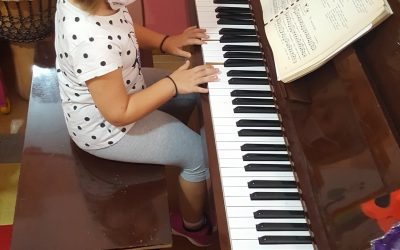Skills Workshops
The educational program at Mikros Maestros Kindergarten is fully updated and follows the guidelines of the Ministry of Education. We have incorporated modern teaching methods, including the Skills Workshops.
The Skills Workshops are an innovative, dynamic, pedagogical educational activity, which involves adding new thematic units focusing on skills, utilizing modern and innovative learning methods.
A core principle of the Skills Workshops is to combine the cognitive domain of the curriculum with the development of essential student abilities to shape them into independent and responsible citizens.
The goal of our new program, through the skills cycles, is to cultivate and enhance the skills of children both on a daily basis and focusing on technology, as well as life and cognitive skills.
Specifically, during the pilot actions implemented in our kindergarten, children’s critical thinking, communication, collaboration, creativity, self-care, and responsibility are nurtured, along with many life skills. Later in the program, we introduce technology skills, enhancing electronic governance literacy, interaction with technological tools, and computer literacy. Finally, we focus on strategic thinking, problem-solving, lateral and computational thinking, as well as thinking routines and reflection, shaping cognitive skills.
Examples of activities we conduct include:
Music and movement activities, crafts, theatrical play, dramatization, organized field trips, use of interactive whiteboards, creating improvised games, etc.
How are the workshops integrated into the daily schedule of Mikros Maestros Kindergarten?
As part of the daily schedule, skills workshops are held once a week. We focus on each thematic cycle for two months. These workshops are conducted in the morning during “organized activities” (teaching hours). Both the goals of the workshops and the monthly program of our kindergarten are based on the D.E.P.P.S. – A.P.S. (Curriculum Framework for Kindergarten).
List of workshops and activity cycles:
The first skills workshop cycle is “Live Better – Well-being,” focusing on HEALTH: Nutrition – Self-care. Our goal is for children to learn how to take care of themselves and love their bodies. Through simple and more complex activities, they will explore the human body and develop affection for it. It is important that they begin familiarizing themselves with their bodies, which can only be achieved through an introduction to the functions of the human body. Finally, through this first cycle, we aim to help children recognize their senses and understand that their senses help them perceive the world around them.
The second skills cycle focuses on the Ecology – Global and Local Natural Heritage theme. The primary goal of the activities in this cycle is to raise awareness in the school community. Concerning environmental issues, we aim to instill ecological awareness in the younger generation through experiential and discovery learning, reinforcing the prevention and protection of our natural environment. Our workshops cover life, learning, and cognitive skills. Specifically, empathy and sensitivity, adaptability, responsibility, organization, creative critical thinking, collaboration, and problem-solving are developed.
The third skills cycle is based on the theme “Care and Act – Social Awareness and Responsibility.” This program aims for both preschool and pre-kindergarten children to understand that the differences of others are not obstacles, to release negative emotions like fear and aggression, and to realize that all people have a place in this world, which we must strive to make better by combating all forms of racism. Additionally, they will learn to give and appreciate the value of volunteering, contribution, and collaboration through simple actions.
The final skills cycle is called “Create and Innovate – Creative Thinking and Initiative.” It focuses on the units “create, innovate, and venture,” including robotics and STEM/STEAM. The goal of these thematic units is to teach children how to think, rather than what to think. This cycle connects to four different fields: natural sciences, technology, engineering, and mathematics. The activities are based on experiential study, educational experience, and collaborative learning. Through technological games, children’s creativity, observation skills, decision-making, and problem-solving abilities are enhanced.







